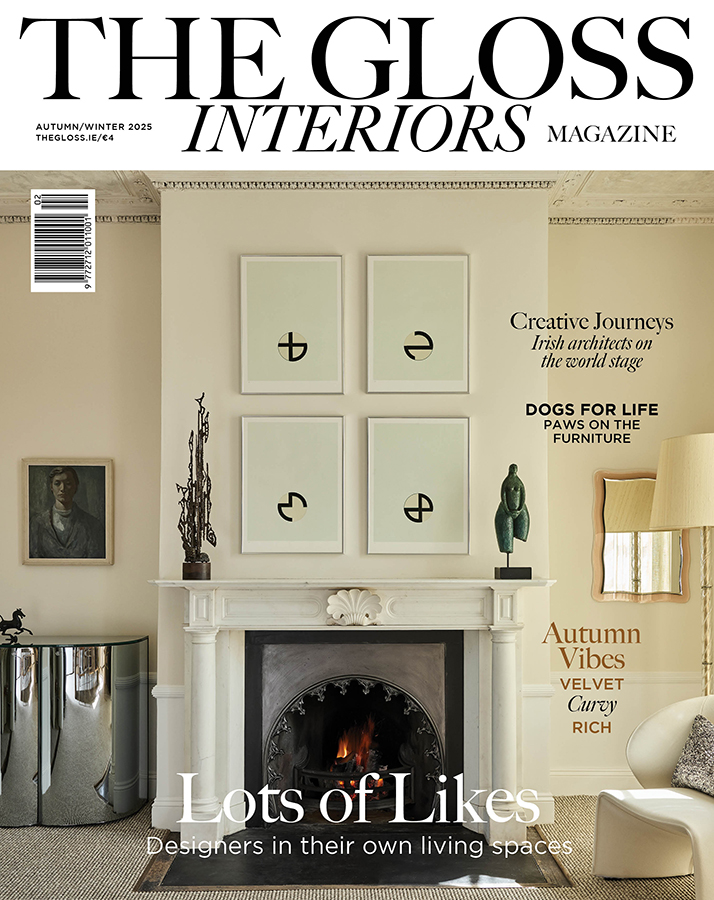Now that the widespread availability of vaccines allows us to start to imagine life after the Covid-19 pandemic, now may be a good time for us to reflect on what is most meaningful to us. What have we learned through the pandemic, and how can we use this collective trauma to cultivate more meaningful lives? Prof. Christian van Nieuwerburgh, Centre for Positive Psychology and Health, RCSI University of Medicine and Health Sciences, and Prof. Michael Steger, Colorado State University, explain …
For the first time in decades, people all over the globe have shared the same extreme adversity. Despite wide-ranging negative consequences and terrible suffering caused by Covid-19, it may be possible for us to use the experience as a way of reconnecting with what is most important. When people have faced highly adverse situations or lived through traumatic events, it is common for them to say things like “it’s really made me think about my life” or “that has put everything into perspective”. People become more philosophical, and the thinking that ensues can lead to significant changes in their lives.
Could Covid-19 be a catalyst for positive change?
So how can we use our experience of Covid-19 as a catalyst for initiating positive changes in our lives? According to decades of research, people who live lives full of meaning and purpose are much more likely to report higher levels of health, happiness, and helpfulness. Through firm grounding in meaningful pursuits, people can transcend the daily pressures of life’s crises and roadblocks. Having a clear sense of meaning and purpose can act like a personal navigation system, allowing us to manage life’s challenges and make better decisions. In this way, we are able to connect, integrate, and interlink our life experiences, understanding ourselves and our world better.
Practical activities for exploring meaning and purpose
Here are some practical ways to catalyse your thinking and to explore meaning and purpose so that you can start to plan for emerging from this pandemic:
1. Capture important moments: Look around you in your life and surroundings and take a picture of something meaningful in your life. It can be something or someone who is nearby, or it can be something that symbolises meaning to you, for example, a photo or souvenir from a special place or trip. Share the photo with someone and tell your story of why it is meaningful to you.
2. Go back in time: Embrace nostalgia and call a good memory to mind. Allow yourself to enjoy the trip down memory lane and savour the experience.
3. Reconnect with others: Make time for a new activity with someone you have been keeping in touch with or reach out to a long-lost friend or isolated family member. Have a modest goal in mind to just say hello or simply pass some time together.
4. Plan a meaningful activity: Think about doing something that expresses your values and aspirations for the future. It can be a gesture of kindness to a neighbour, a spiritual activity or an event that brings you and your loved ones closer together.
5. Write a letter or email to your future self: Put into words what this past year has been like, including the challenges you’ve faced, the lessons you’ve learned, moments of gratitude and important achievements. Write it to yourself as if you were reading it one year from today, taking special care to highlight how you believe you will grow or become wiser as a result of making it through until then.
6. Talk about meaning: Wouldn’t it be great if looking for meaning was as common and stress-free as chatting about recommendations about great recipes or shows to watch? Talking to others about one’s purpose and what makes life personally meaningful is a positive way of strengthening relationships, increasing our own awareness and deepening our appreciation of what matters most.
If you would like to try a more deliberative approach, follow the short conversational framework below. Rather than a free-flowing conversation, this process involves turn-taking, respectful listening and appreciation. The conversation creates opportunities for both people to think out loud, in the other’s presence. This will feel more like a pair of interviews than a typical casual chat. The questions are asked in order, and each person is given uninterrupted time to provide a thoughtful answer to each question before moving on to the following one. The person who asked the question should listen quietly, respectfully and appreciatively to the response. Then the roles are reversed, and the person who just shared their thoughts listens to the other person’s response to the same question. Start the conversation by ensuring that you are both clear about the purpose of the conversation and agreeing how much time you will be spending together.
Then ask each other these questions:
1. What are the three most important things in your life?
2. How would you explain what life is all about to a 5-year-old child?
3. What is the purpose that drives you?
4. What is the most important realisation you had about your life during the pandemic?
5. Based on what you have learned, what changes would you like to make in your daily life?
Conclude the conversation by thanking each other and sharing one thing that you appreciate about the other person.
Planning for a better tomorrow
Spending time exploring meaning and purpose is one way for us to take something positive from what has been an incredibly difficult couple of years. By using the pandemic as a catalyst for re-evaluating how well our everyday lives relate to what is most important for us, we will be able to leverage what we have learned through adversity. In turn, this will allow us to emerge from this pandemic with greater clarity about what really matters and a sense of renewed hope for a better future for ourselves and others.
By Prof. Christian van Nieuwerburgh, Centre for Positive Psychology and Health, RCSI University of Medicine and Health Sciences, and Prof. Michael Steger, Colorado State University.
LOVETHEGLOSS.IE?
Sign up to our MAILING LIST now for a roundup of the latest fashion, beauty, interiors and entertaining news from THE GLOSS MAGAZINE’s daily dispatches.





